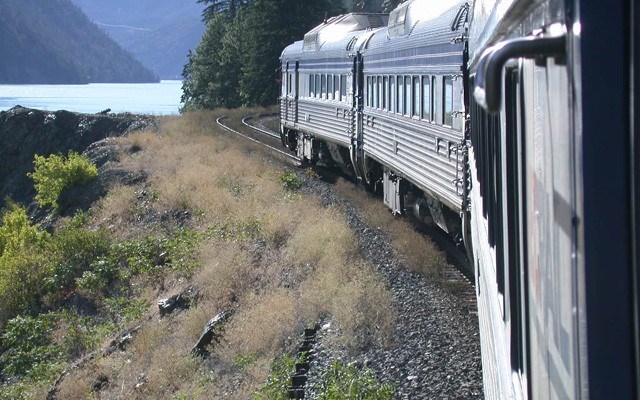When the last of the BC Rail "Budd Cars" came off provincial rail lines in 2002, it severed a vital link for B.C.'s northern residents.
"It was such a blow to all rural communities," said Marg Lampman, mayor of Lillooet.
"We don't have bus transportation in and out of Lillooet, and the only way to get down to medical appointments that your doctor wants you to have in the Lower Mainland, if you don't have a vehicle, is to pay someone to do it, and it's very costly."
The loss of passenger rail also meant fewer jobs and fewer visitors to B.C.'s remote north.
It's for these reasons and more that Lampman is lobbying for the return of passenger rail service between North Vancouver and Prince George.
On Feb. 1, Lillooet's mayor and council passed a resolution requesting all stakeholders be brought together by the province to talk about reinstating passenger rail.
The resolution was forwarded to local governments in the region for support.
Lampman believes the reinvestment would prove attractive, as it would benefit everything from the environment and health care to tourism and jobs.
"We're not asking the B.C. government to put a rail system in. We're asking the B.C. government to be open to inviting other rail interests to come and talk to them," Lampman said.
The federal government plans to invest $3.4 billion in public transit over the next three years, with more than $460 million earmarked for B.C.
Included in that is $7.7 million for VIA Rail, though the company says it currently has no plans to expand service in B.C.
According to Todd Stone, Minister of Transportation and Infrastructure, low ridership and high maintenance costs make the return of passenger rail unpractical.
"In fact, passenger service between Prince George and North Vancouver was discontinued in 2002 because of relatively low ridership — with that service losing several million dollars every year," Stone said in an emailed statement.
"The route took 14 hours of travel time and was only being used by less than 10 per cent of travellers along the corridor. That plus the tens of millions of dollars needed to replace the rail cars meant it was not a financially viable service."
The government has invested almost $60 million in highway improvements in the Lillooet area in the last decade, reducing the time it takes to drive to Prince George to nine hours, Stone said.
"Given the fact that market demand for passenger rail service along this route remains marginal, the provincial government is not considering reinstating this service," he said. "That said, the ministry recognizes that we need to continue to invest in the area and will continue to plan improvements to roads over the long-term, as funding permits."
Jordan Sturdy, MLA for West Vancouver-Sea to Sky, said it could make sense if the dollars add up and the right partners come to the table.
"It may be that it's fair to say that the province of B.C. is not going to reinstate passenger rail service, but (in terms of) other opportunities for passenger rail through a private server... it's certainly not beyond the realm of possibility I suppose," Sturdy said.
"But ultimately it has to make economic sense."
Given its location, Sturdy said he understands why Lillooet would want to see passenger rail return.
"Lillooet (population about 2,300) is about as isolated as a community as you can virtually get in B.C., in some respects, in that they don't have a bus service," he said. "The only way to get out of Lillooet is in a private vehicle, so I could really understand why they would want to create some other public transit in the area."
Sturdy sat on the pre-Olympics, pre-highway-upgrades Transportation Advisory Group, which did look at the possibility of bringing back rail service, he said.
But through its discussions the group found upgrading the highway made more economic sense and benefited more people.
"I think we all recognize that with this day and age, probably the best public transit alternative — or most cost-effective public transit alternative, if not glamorous — is certainly buses," Sturdy said.
Greyhound currently doesn't have a licence to operate in Lillooet, but if the bus company saw an increase in demand it would consider applying for one, said spokesperson Lanesha Gipson.
"Residents are welcome to write to us regarding service," Gipson said. "However, because the community has a fairly low population and isn't very close to the main highway, it poses some challenges with having service in the area."




